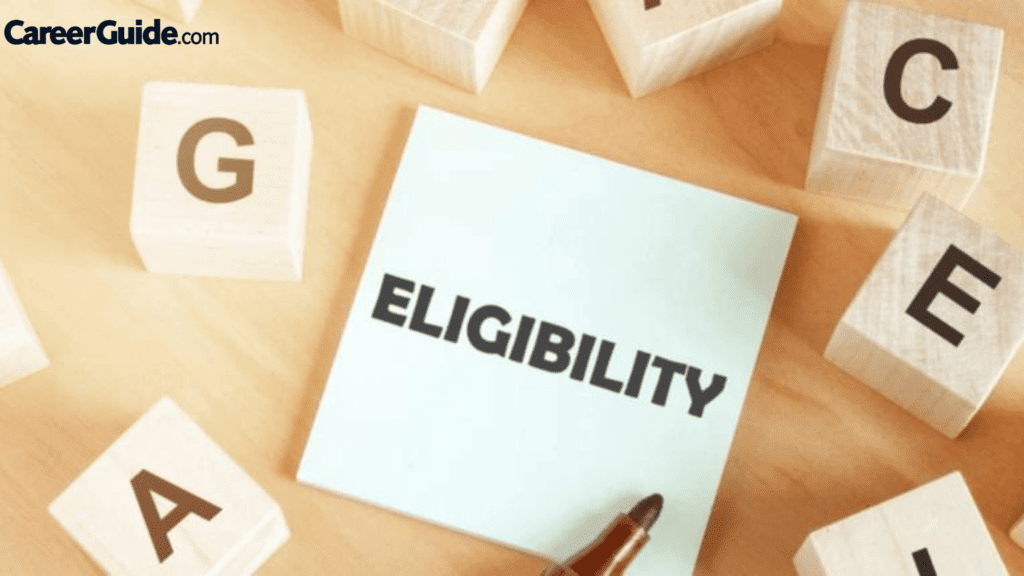One of the most sought-after design specializations among students is fashion design. With the goal of one day becoming a successful fashion designer, thousands of applicants enrol each year to various fashion design institutions all around the nation. You have come to the correct place if a career in fashion design is something you are interested in.
Fashion Design is one of the most inventive course alternatives and a well-liked vocational education path both in India and overseas. Within a decade, the fashion industry experienced rapid growth. If you want to work in the industry, picking the right Fashion Designing course will undoubtedly provide you with a wealth of opportunities. However, it is crucial to be aware of a few key programme components before enrolling in a Fashion design courses in India. Despite their tight ties, there are some differences between fashion design and textile design. Textile design courses teach students about the process of developing structures and designs for knitted, woven, printed, or surface-ornamented fabrics and the like, whereas fashion design focuses on producing clothing and lifestyle accessories.
Table of contents
- Eligibility criteria for Fashion design courses in India
- Skills for Fashion design courses in India
- Popular Exams for Fashion design courses in India
- syllabus and subjects for Fashion design courses in India
- PG syllabus of Fashion design courses in India
- syllabus for a diploma or certificate in fashion design courses in India
- Jobs in Fashion Design & Top Employers
- Top Recruiters for Fashion Design
Fashion design courses in India

The study of fashion design is an option for aspirants at both the undergraduate and graduate levels. Additionally, those who are interested in fashion design can pursue short-term diploma or certificate programs. Popular Fashion design courses in India that are provided at various colleges include:
Popular Fashion Design Courses in India at UG Level | |
| Bachelor of Design (BDes) | Bachelor of Fashion Technology (BFTech) |
| Bachelor of Arts (BA) | Bachelor of Science (BSc) |
| Diploma | Certificate |
Popular Fashion Design Courses in India at PG Level | |
| Master of Design (MDes) | Master of Fashion Technology (MFTech) |
| Master of Fashion Management (MFM) | Master of Arts (MA) |
| Master of Science (MSc) | PG Diploma |
Eligibility criteria for Fashion design courses in India

Those who have completed their Class 12 education in any subject (Science, Commerce, or the Arts) are eligible to enroll in a graduate-level fashion design programme. However, the majority of well-known design institutions only permit applicants to participate in their admissions process provided they have completed their secondary education from a recognized board. Candidates who have finished a graduate-level design course are favored for admission to the postgraduate programme in fashion design.
Skills for Fashion design courses in India

In addition to possessing the necessary academic credentials, one needs to be artistic and creative in order to succeed in this sector. Additionally, candidates must be skilled at drawing and have the ability to communicate their ideas through clear sketches. Candidates who want to enroll in a programme for fashion design must have the following skill set:
Fashion Designer Skills | |
| Creativity and artistic taste | Sensitivity to colours, shades, and tones |
| Good communication skills | Originality and innovativeness |
| Ability to think in three-dimensions to translate visualization into garments | Goal-oriented |
| Business acumen | Interest in sketching |
| Eye for detail | Visual imagination |
| Persuasiveness | Observation |
| Good understanding of market and customer lifestyle | |
Popular Exams for Fashion design courses in India

The majority of educational institutions use a design aptitude test to shortlist applicants for admission to their Fashion Design programmes. This is followed by a review of the applicant’s portfolio and a round of personal interviews. Aspiring fashion designers should think about taking some of the following common admission exams:
Popular entrance exam Fashion design courses in India | |
| NIFT Entrance Exam | Pearl Academy Entrance Exam |
| GD Goenka DAT | NID Entrance Exam |
| IIAD Entrance Exam | AIEED |
syllabus and subjects for Fashion design courses in India

Depending on the degree, diploma, or certificate that students receive upon completing the course, different topics are covered in a fashion design course. In addition, the curriculum for the fashion design course may vary slightly from one college to another.
UG syllabus of Fashion design courses in India
The following list includes some typical subjects covered in a fashion design undergraduate course:
BDes Fashion Design Syllabus | |
| Introduction to Pattern Making & Draping | Introduction to Textiles |
| Introduction to Fashion design & Fashion Technology | Fashion Theory |
| Introduction to Fashion Sketching & Illustration | History of Fashion |
| Apparel Development | Current Trends and Forecasting |
| Computer Aided Design | Apparel Development |
| Fashion Illustration | Design Process |
| Advanced Draping | Model & Prototype Development |
| Research & Communication | Element of Colour & Design |
| Fashion Model Drawing | Fashion Accessory |
BA (Hons) Fashion Design Syllabus | |
| Apparel Construction Methods | Colour Mixing |
| Computer-Aided Design | Elements of Textiles |
| Fabric Dyeing and Printing | Fashion Illustration and Design |
| Fashion Studies | History of Costumes |
| Introduction to Pattern Making and Garment Construction | Leather Designing |
| Manufacturing Technology | Surface Development Techniques |
| Textile Science | – |
BSc Fashion Design Syllabus | |
| Analytical Drawing | Apparel Construction Methods |
| Basic Computer Studies | Computer-Aided Design |
| Colour Mixing | Basic Photography |
| Grading | History of Costumes |
| Introduction to Pattern Making & Garment Construction | Indian Art Appreciation |
| Knitwear | Leather Designing |
| Creative Jewellery | Current Global Fashion Trends |
| Elements of Design | Draping |
| Elements of Textiles | Fabric Dyeing and Printing |
| Fashion History | Fashion Forecasting |
| Fashion Illustration and Design | Design Process |
| Fashion Studies | Free Hand Drawing |
| Garment Construction | Geometrical Construction |
BSc Fashion Design & Technology Syllabus | |
| Principles of Fashion | Fashion Industry and Concepts |
| Fashion Marketing | Fundamentals of Fabrics |
| Quantitative Techniques and Demand Forecasting | Introduction to IT applications |
| Fashion Communication and Presentation | Consumer Behaviour in Fashion |
| Marketing Research Concepts & Techniques | Principles and Techniques of Merchandising |
| Introduction to Garment Manufacturing Technology | Pattern Making, Grading and Construction |
| Fashion Distribution Management | – |
PG syllabus of Fashion design courses in India

MDes Fashion Design Syllabus |
|
| Introduction to Design | Visual Design- Principles and Applications |
| Ergonomics | Design Methods |
| Form Studies | Graphic Design |
MA Fashion Design Syllabus |
|
| Apparel Manufacturing Technology | Fashion Communication |
| Advanced Pattern Making | Construction of Women’s Wear |
| Design Illustration | Computer Designing |
| Retail Marketing & Merchandising | Knitwear Design Technology |
| Construction of Men’s Wear | – |
MBA Fashion Design Management Syllabus |
|
| Economics and Management Decisions | Qualitative Techniques |
| Business Communication and Negotiation Skills | Organisational Behaviour |
| Marketing Management | Indian Fashion Scenario |
| Research Methodology and App Statistics | Basic Concepts of Fashion Products and Manufacturing |
| Global Fashion Scenario | Principles of Fashion Marketing and Merchandising |
| International Trade Operations and Documentation | Entrepreneurship and Fashion Venture Management |
| Visual Mechandising | Competition and Strategies in Fashion |
| International Fashion Marketing | – |
MBA Fashion Management Syllabus |
|
| Basic Product and Manufacturing Related Knowledge | Principles of Fashion Marketing, Merchandising and Management |
| Economic Analysis and Statistics | Information Technology |
| Marketing Research and Consumer Behaviour | Global Textiles and Apparel Product Market Characteristics |
| Retail Management and Advanced Export Merchandising | Quantitative Techniques and Operations Research |
| Management Accounting | Marketing Strategies and Brand Management |
| International Marketing | Fashion Forecasting and Product Development |
| Financial Management and International Finance | Human Resource Management |
| Supply Chain Management and e-Business | Customer Relationship Management |
| Visual Merchandising | Intellectual Property Rights |
MSc Fashion Designing Syllabus |
|
| Apparel Manufacturing Technology | Fashion Communication |
| Advanced Pattern Making | Construction of Women’s Wear |
| Design Illustration | Computer-Aided Designing |
| Retail Marketing and Merchandising | Construction of Men’s Wear |
| Knitwear design Technology | – |
MSc Fashion Design & Technology Syllabus |
|
| Elements of Fashion | History of World Fashion and Costume |
| Women’s Wear- International Fashion | Indian Wear |
| Surface Design Techniques | Apparel Technology |
| Textile Technology | History of Indian Costumes and Textiles |
| Men’s Wear | Fashion Merchandising and Marketing |
| Creative Pattern Making | Fashion Styling |
syllabus for a diploma or certificate in fashion design courses in India

Following are some typical subjects covered in a certificate or diploma programme in fashion design:
Syllabus for Diploma in Fashion Design Course | |
| Fashion Designing | Fashion Accessory |
| Fashion Illustration | Fashion Ornamentation |
| Textile Science | Product Specification |
| Pattern Making and Garment Construction | Computer Aided Design |
| Fashion Merchandising and Management | Fashion Marketing and Management |
Syllabus for UG Diploma in Fashion and Apparel Design | |
| Foundation Art | Fashion and Apparel Design Fundamentals |
| Elements & Principles of Fashion & Apparel Design | History of the Western World Fashion |
| Introduction to Fashion Design | Introduction to Textiles |
| Basic of Computer and Application | Creative Yarn Craft |
| Introduction to Fashion Illustration | Creative Embroidery |
| Sewing Technology | Fashion Design: Introduction to Pattern Making |
| Introduction Garment Manufacturing Technology | Introduction to Draping |
| Textile Science Processing (Dyeing and Printing) | Advanced CAD for Fashion and Textiles |
| Garment Manufacturing, History of Indian Fashion | Advanced Course in Fashion Illustration |
| Vintage Costumes | History of Western World Fashion |
| Fashion Accessories | Fabric Testing and Quality Control |
| Advanced Course in Fashion and Apparel Design | Visual Merchandising |
| Fashion Business Management | Fashion Analysis, Global Markets |
| Production Management and Merchandising | – |
Syllabus for PG Diploma Fashion Design | |
| Fashion Design Process | Visualisation and Presentation Techniques |
| Contextual design studies and Communication | Fashion Form and Function |
| Traditional Textiles & Crafts | Business Studies & Entrepreneurship |
Syllabus for Certificate Course in Fashion Design | |
| Fashion Accessory | Textile Science |
| Pattern Making and Garment Construction | Fashion Mechandising and Management |
| Fashion Illustration | Fashion Ornamentation |
| Product Specification | Fashion Marketing and Management |
| Computer Aided Design | – |
Syllabus for Certificate in Fashion Styling | |
| Shoot Concepts | Fashion Image Analysis |
| Styling for Body Types | Styling to Suit Various Fashion Genres |
| Trends | Street Style |
| Styling Kit | Requesting Samples from PRS / Sourcing & Returns |
| Fashion Editing & Run Through | Giving Direction to Achieve the Desired Image |
| Working with Photographers, Hair, and Makeup | Project Management |
| Conceptual Editorial Styling vs Sales Driven | Commercial Styling |
| Fashion Hair and Makeup | Composition, Colour & Mood |
| Working with a Photographer | Creating a Visual Reference Board |
Jobs in Fashion Design & Top Employers

Those who want to work in the fashion sector must have a thorough understanding of the various materials, weaves, drape characteristics, colour, and evolving trends. The following list of job profiles is for candidates who want to pursue a career in fashion design:
- Fashion Designer: Candidates for this position can either launch their own label or work for a company that designs clothing. As a fashion designer, you must work on styling a variety of garments, including jeans, jackets, women’s, men’s, children’s, evening, knit, sports, and other forms of clothing.
- Fashion marketer: Candidates for this position may work for clothing firms, boutiques, or outlet chain stores. Aspiring fashion marketers need to promote and raise awareness of a specific brand, designer labels, or department shops. Therefore, if one selects such a vocation, they are essentially expected to plan, direct, or coordinate marketing policies and programmes, such as assessing the market for a company’s and its rivals’ goods and services and identifying potential clients.
- Manager of Fashion Concepts: This profile’s employees are expected to come up with original concepts around which a clothing or accessory line should be created by a designer, brand, or fashion house. Additionally, those in this role conduct research and make recommendations on how to sell the new apparel line.
- Setting quality criteria for everything that is acquired for a new collection is the first and foremost responsibility of a quality controller. In addition, the quality control (QC) manager gives instructions to each department to ensure quality in numerous procedures in addition to the creation of clothing. QC is also in charge of ensuring that the product’s quality is maintained throughout all production phases.
- Advisory/Personal Stylist in Fashion: Most people who want to work for themselves as personal stylists or fashion advisors. However, if someone has a truly solid reputation in the fashion sector, they can only really stand out in this job profile. A fashion consultant’s or personal stylist’s normal job is to assist clients in creating a wardrobe that enhances their public image. People who work in this field give advice on the newest clothing trends, hair and makeup styles, and colours to wear or avoid.
- Technical Designer: Technical designers make decisions on the stitching and construction of clothing. They are in charge of putting together a technical package, or TP. So when they receive a sketch of the garment to be constructed, their job officially begins. Technical designers typically need to include packaging instructions, points of measurement (POM), wash descriptions, label/hangtag placements, and stitching specifics.
- A department store, design firm, or fashion magazine’s fashion divisions must have a consistent “look and feel” thanks to the efforts of the fashion coordinator. In order to advise the organisation on the fabric, design, and style the company should make, a fashion coordinator must continuously scan various fashion journals and stay current on industry trends.
- organizers of a fashion show: A fashion show organizer must plan a variety of fashion-related events. One needs strong contacts in this industry to succeed.
Top Recruiters for Fashion Design

Graduates in fashion design have a wide range of opportunities available to them. Aspirants can work for corporations and fashion designers after completing their course. The following is a list of some businesses that hire graduates in fashion design:
Top Fashion Design Companies | |
| Raymonds | Benetton |
| Arvind Garments | ITC Ltd. |
| Levis | Lifestyle |
| Madura Garments | Modelama Exports |
| Omega Designs | Orient Craft |
| Pantaloon | Proline |
| Shahi Exports | Span India |
| Spykar | Swarovski India |
| Uni Style India | Texport Overseas |
| Snapdeal | Shoppers Stop |
| Pearl Global | Mahajan Overseas |
| Kimaya | Gokuldas Images |
| Indus League Clothing | |
Read Also






